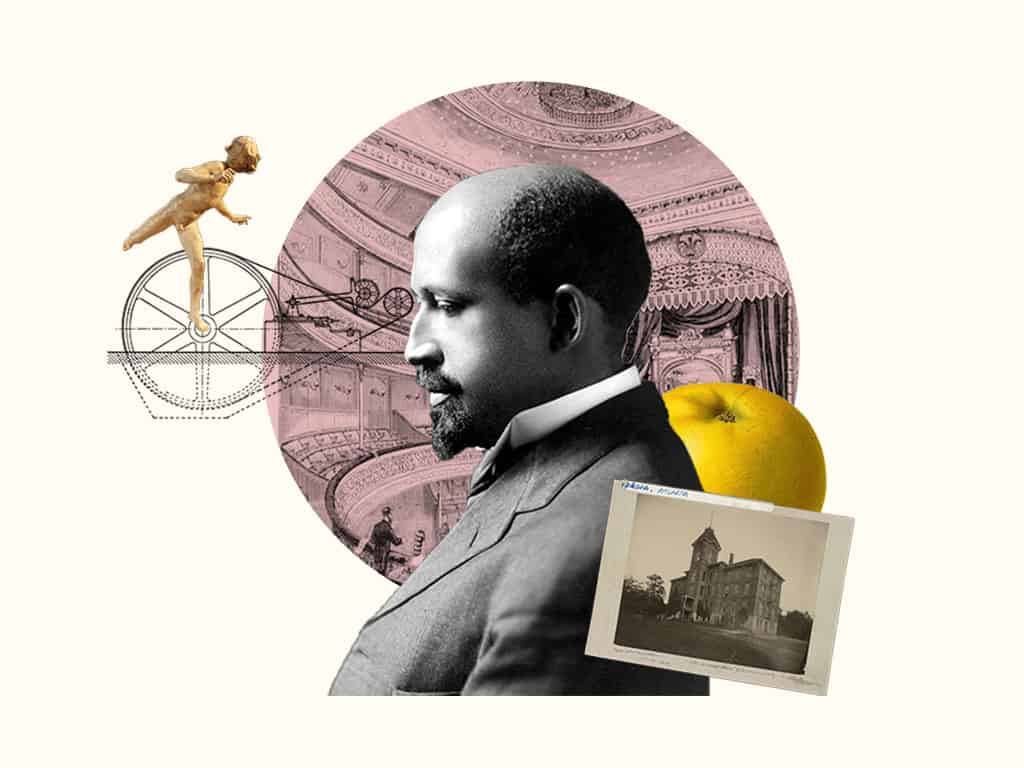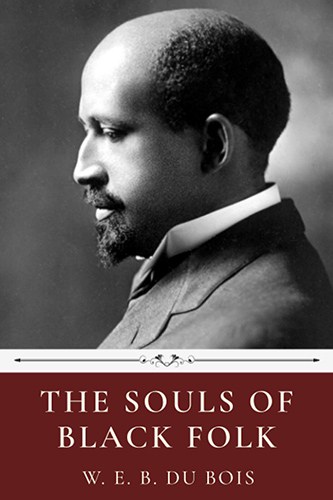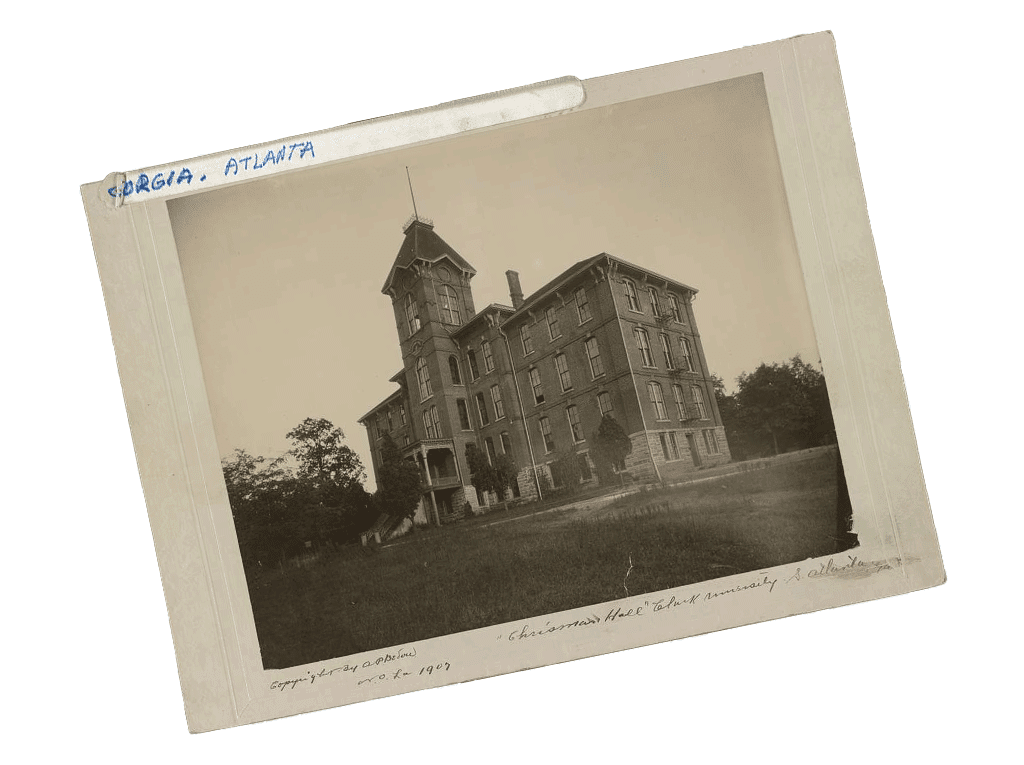The true college will ever have one goal, – not to earn meat, but to know the end and aim of that life which meat nourishes.
– Of The Wings of Atlanta, Chapter 5
W.E.B. DuBois

Souls of Black Folk
W.E.B. DuBois

This link to a free text also includes an audio recording:
...DuBois investigates the spiritual, moral and political condition of Black Americans 40 years after the Civil War...
W.E.B. Du Bois’, The Souls of Black Folk, is an artful and unique amalgamation of poetry, prose, historical research and analysis, sociological investigation, musical exegesis, educational treatise and call to political and social action. In these fourteen chapters and afterthought, DuBois investigates the spiritual, moral and political condition of Black Americans 40 years after the Civil War and argues that educational reform and enlightened democratic political engagement are necessary to secure their rights and dignity. A critic of Booker T. Washington’s emphasis on material conditions and economic gains, Du Bois’ text investigates the soul, where prejudice, suffering and ignorance may make a life unfree even despite being materially comfortable.
Why This Text is Transformative?
His work helped shape productive advocacy for equal rights and treatment of Black people in the United States and remains relevant in that continued struggle.
Du Bois is one of the most influential US authors in the 20th century. His work helped shape productive advocacy for equal rights and treatment of Black people in the United States and remains relevant in that continued struggle. His penetrating insight into “double consciousness” remains an important psychological and sociological framework. Du Bois is an evangelist for the liberatory power of Liberal Education and its, “simply old time-glorified methods of delving for Truth, and searching out the hidden beauties of life, and learning the good of living.” In our time of spiritual striving and moral ambiguity, Du Bois’ work may help students reorient their educational paths from one pointed solely at work to one also aimed at Truth, and perhaps also to see with him the final product of education as, “neither a psychologist nor a brick mason, but a man.”
A Focused Selection
This is a versatile text to assign. It can be read in its entirety over two or three class meetings, but it is also productive to read in excerpts. The following are some discussion questions related to Chapter 5, Of The Wings of Atlanta.
1) What are your “high and generous ideals”? For what price would you sacrifice them?
2) What does Du Bois mean by the term, “Mammonism”? Would he consider our time to be one of more or less Mammonism?
3) Du Bois argued that the ultimate goal of a college education should be to better understand the purpose and meaning of our lives. What are we living for? What do you live for other than the acquisition of goods or skills that sustain or may sustain your life?
4) “The worker must work for the glory of his handiwork, not simply for pay.” Consider your current course of study. If money or other financial considerations were not an issue, would you pursue a career in that area if you were not paid for it?
Building Bridges
Text Mapping
Discipline Mapping
Sociology
Political Science/Government
Philosophy & Religion
Page Contributor





